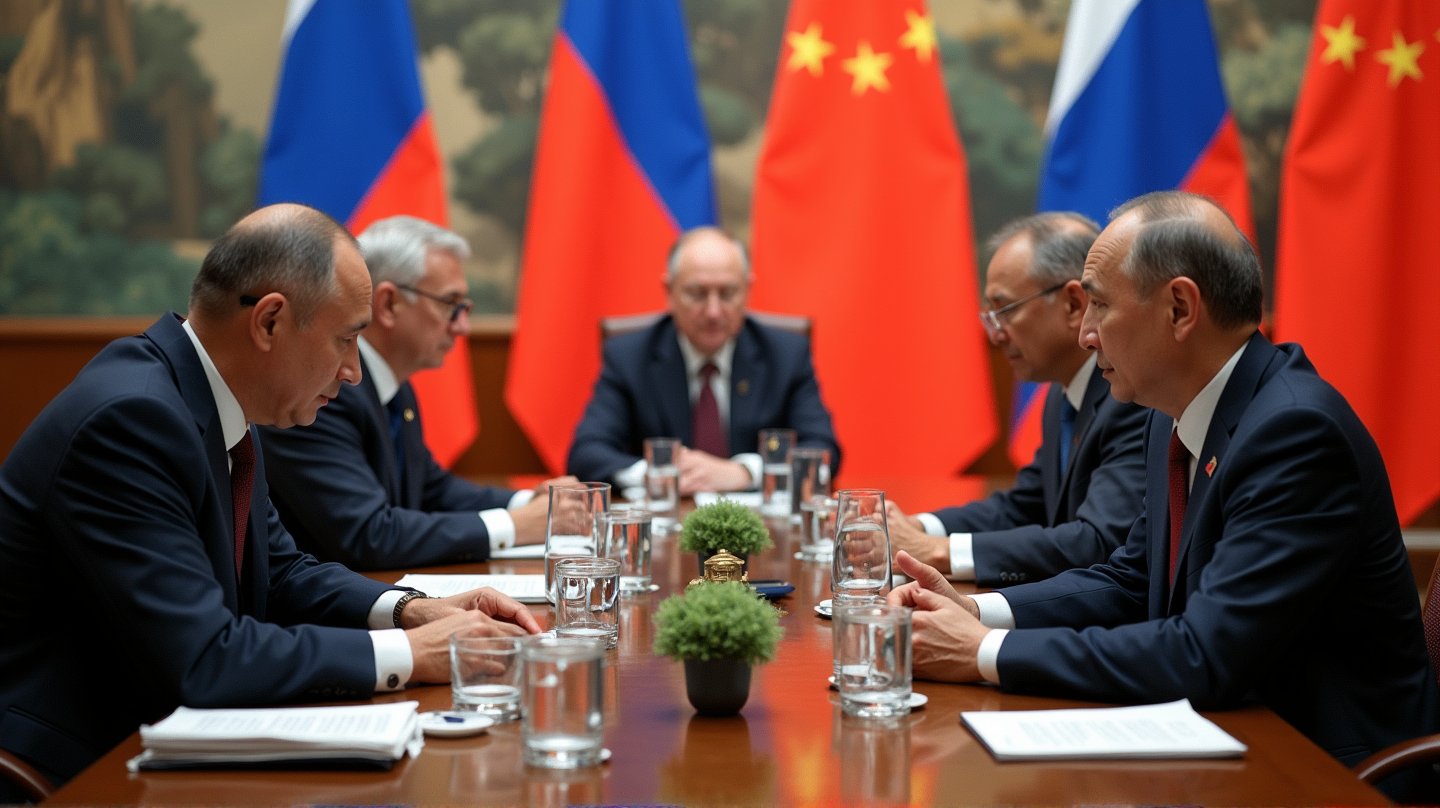In a landscape fraught with geopolitical tensions and shifting alliances, Russia and China have taken center stage, engaging in pivotal dialogues regarding their intertwined futures and the complex dynamics involving the United States and the Ukraine conflict. On July 13, 2025, Russian Foreign Minister Sergei Lavrov and Chinese Foreign Minister Wang Yi met in Beijing on the sidelines of the Shanghai Cooperation Organisation’s (SCO) Foreign Ministers’ Council meeting, marking a significant moment in their ongoing ‘no limits’ partnership.
A Meeting Beyond Formality
The strategic discussions between Lavrov and Wang Yi were far more than formal diplomatic niceties. This dialogue underscores the importance of a reinforced strategic alliance as both nations seek to navigate the unpredictability of global politics. The burgeoning relationship between Russia and China highlights their mutual interest in counterbalancing U.S. influence on the global stage.
Deliberations on Ukraine and U.S. Relations
Amidst ongoing global scrutiny over Russia’s actions in Ukraine, the foreign ministers focused on resolving the persistent conflict. The goal is not merely peace but the restoration of global stability by enhancing coordination at international platforms like the United Nations and the G20. The dialogue also encapsulated a broader perspective on Korea and Iran, showcasing the breadth of their geopolitical concerns.
Mutual Pledges for Global Revitalization
China and Russia emphasized the strengthening of bilateral ties as a crucial response to “a turbulent and changing world,” fostering mutual development and revitalization. This approach is supported by their commitment to shared values and strategic goals within forums like SCO, BRICS, and APEC, ensuring their voices are heard across varied geopolitical arenas.
The Broader Geopolitical Game
The meeting comes against a backdrop of a strained triangle among China, Russia, and the United States. With the U.S. casting China as its primary competitor and Russia as a threat, the dynamics are more than mere rivalry; they are about shaping the future world order. This delicate interplay of alliances and oppositions underscores the current geopolitical climate.
Conclusion: Strategic Collaboration Amidst Challenges
As stated in Reuters, the Russia-China understanding serves as a testament to their coordinated policies and hopes for a balanced world. Their partnership, declared as having “no limits,” fundamentally transforms how global politics will be navigated in the coming years. Remaining at the forefront of diplomacy, both nations are poised to adapt and respond proactively to the ongoing challenges brought by shifting alliances and global uncertainties.
